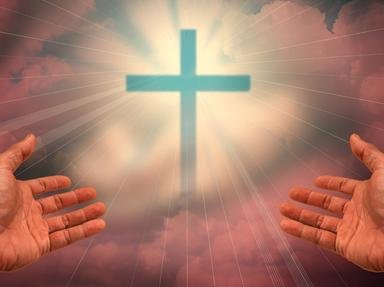Quiz Answer Key and Fun Facts
1. In which book of the Bible do we find God, or YWHW, referred to as "The Ancient of days?"
2. Once, there was a man who asked Jesus in a very cynical manner, "What is truth?" Jesus let the rhetorical question ride without answering it, because He had just told the man that He Himself was a witness to the truth. (John 18:37-38)
The man was Pontius Pilate, and Jesus had just been delivered to the Roman authorities for trial. The same author, John, later gave a more in-depth explanation of truth in 1 John 5:6-13. What comprises this truth, according to John?
3. In the book of James, we see an example of hypocrisy posing as compassion. He asked a rhetorical question in response to what he perceived to be a lack of genuine caring by those who considered themselves to be Christians. In James 2:14-17, he addressed the following problem:
If someone is destitute, cold, hungry and in need, where is the justification in telling them to go in peace; to be warm or filled without providing for their need? What does James say about such callousness toward our fellow man?
4. According to 1 Peter 4:17, in the King James Version of the Bible, where does God's judgement begin?
5. You may be familiar with the books of 1st and 2nd Kings, in the Old Testament, but in the Greek Septuagint, there were four books of the Kings. Which books in the Christian Bible had been known as such to the Greeks?
6. When Abraham's nephew Lot fled from Sodom with his wife and two daughters, only Lot and the two daughters escaped safely. His wife, as many people know, looked back towards Sodom, and was turned into a pillar of salt. Into what city, which had been slated for destruction by God along with Sodom and Gomorrah, did the three escapees enter after their flight? (Genesis 19:17-23 King James Version)
7. How does 2 Peter 3:10-13 (in the King James Version) describe what the end of the earth will be filled with?
8. After Jesus raised his friend Lazarus from the dead, a man who had been buried in a tomb for four days, someone got the bright idea that they should just kill Lazarus again in order to discredit Jesus' work, as if Jesus could not simply perform the same miracle again. According to John 12:1-11 in the King James Version, who came up with this brilliant plan?
9. According to Proverbs chapter 1 verse 7 in the King James Version, what is the beginning of knowledge?
10. To whom was the apostle Paul writing when he made the following statement?
"For we brought nothing into this world and it is certain that we can carry nothing out."
Source: Author
logcrawler
This quiz was reviewed by FunTrivia editor
CellarDoor before going online.
Any errors found in FunTrivia content are routinely corrected through our feedback system.
